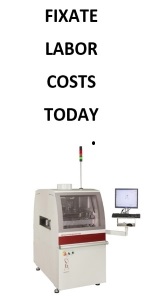Cisco, of San Jose, Calif., said it will stop making the 15900 Wavelength Router, a product that came out of its acquisition of Monterey Networks, in August 1999.
``Suffice it to say we thought the market would mature much faster than it has,'' Carl Russo, group vice president of optical networking, told Reuters. ``Given the current market conditions, we're going to focus our resources on things that are driving revenue for us.''
Specifically, Cisco now plans to redeploy the engineering talent working on the 15900 Wavelength Router into the so-called metropolitan optical market, which has been growing faster than the core of optical networks. Cisco's acquisition of Cerent Corp. in August 1999 gave the company products sold into the metropolitan market.
``This tells me the acquisition didn't go very well and they didn't acquire the type of technology they wanted,'' said Epoch Partners analyst Richard Shannon. ``They've had trouble commercializing the technology and getting the product out into the market.''
Cisco, known for its blistering sales growth and ravenous appetite for buying companies, has also been hit by the slowdown in the U.S. economy. It has announced layoffs and warned that its third-quarter sales will fall about 5 percent from the second, a first for Cisco since it went public in 1991.
Cisco announced the acquisition of Texas-based Monterey Networks for about $500 million in August 1999, the same day it announced its intent to purchase Cerent, for $6.86 billion in stock. The Cerent product, according to Cisco and corroborated by market researches, is a runaway success.
Not so for the product that came with the Monterey acquisition. Using so-called cross connect technology, the 15900 boosted network capacity at the core of an optical network.
``A cynic would say this announcement is about Cisco saving face,'' said Robertson Stephens analyst Paul Johnson, adding that there were technical problems with the 15900, which came from Monterey. ``They're admitting that the Monterey acquisition didn't work.''
Cerent's product -- the only one it had when Cisco bought it -- is about the size of a microwave oven that sits between the fiber-optic cable and routers or cable systems or other devices. Using sophisticated software, it organizes and compresses the data -- whether voice, data or video -- and vastly increases the size of the pipe through which that information is sent.
``The Cerent product has been wildly successful for them,'' Shannon said. ``I wouldn't say that Cisco is completely abandoning the core of the (optical) market, though; that's a fabulously large opportunity that will grow over the long term.''
Some analysts suggested that the discontinuation of the product wasn't as significant as the subtext: that Cisco is focusing more strongly than ever on products it knows it can sell and that are in high demand. This will help boost profitability.
Russo himself nearly said as much.
``When you're in tough times, you always try to bring your products closer to revenue'' and customers who want them, Russo said in the interview. ``We're going to do some things and do them well and we're not going to do others.''
In trading after the close, Cisco shares slipped slightly to $13-9/16 from a regular close of $13-11/16 on the Nasdaq. In regular trading, Cisco fell 1/16.






